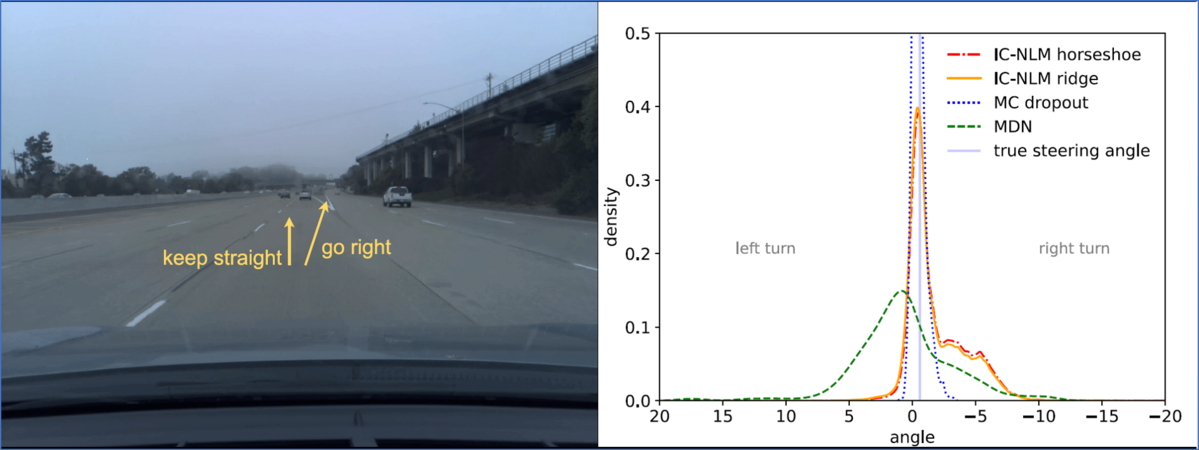Clara Hoffmann and Prof. Nadja Klein from the Methods for Big Data research group have been awarded the prestigious Mitchell Prize sponsored by the Section on Bayesian Statistical Science (SBSS) of the ASA, the International Society for Bayesian Analysis (ISBA), and the Mitchell Prize Founders’ Committee.
Their paper, "Marginally calibrated response distributions for end-to-end learning in autonomous driving", published in "The Annals of Applied Statistics", was recognized for its outstanding contribution to statistical methodology with strong practical relevance. The research addresses uncertainty quantification in neural networks for autonomous driving – a key factor in ensuring the safety of such systems.
End-to-end models predict the steering angle directly from camera images, but usually only provide point estimates. The method awarded in the prize-winning paper is based on the "Implicit Copula Neural Linear Model" (IC-NLM), which generates probability distributions for steering angles and is particularly well calibrated. In order to make the method usable for large amounts of data, a fast estimation technique using variational inference was used.

The approach by Hoffmann and Klein (red, orange) enables a targeted distinction between different steering options—such as continuing straight or taking the highway exit—by using probability distributions instead of point estimates.
Tests with real driving data show: The IC-NL model is not only precise, but can also estimate its own predictive reliability more reliably compared to other models, thus contributing to the explainability of neural networks. The award underlines the importance of statistical methods for safe AI applications - a research focus at the SCC.
Contact at the SCC: Clara Hoffmann, Prof. Nadja Klein
